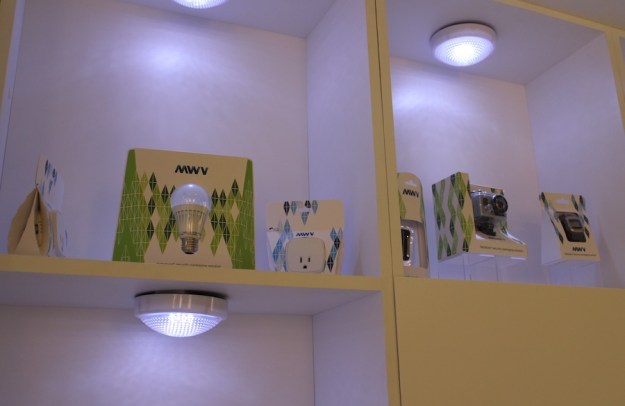
Every year, retailers lose as much as $120 billion dollars in stolen products – whether from in-store thefts or corrupt logistics teams. To provide a 21st century solution that extends beyond the chirping alarms, we stopped by to chat with MeadWestVaco (MWV) to see how the company aims to revolutionize how retailers can protect against a case of the sticky fingers.

At CES 2013, MWV took this anti-theft packaging up a notch. Rather than building packaging that’s secure and conspicuous to open, the company has integrated a security device that’s embedded into the cardboard and behind the product itself. Even if someone were to walk outside with the stolen item, an alarm would sound off directly from the product – that way, if a thief disappears into the parking lot after they’ve exited the store, the alarm would still ring as long as they have the product on them.
Another innovative solution is MWV’s ability to deactivate devices until they are purchased. In the sample Kellogg showed us, a USB thumb drive has been outfitted with InterceptTM, or what simply looks like a little yellow tab. Until that specific item gets scanned after a legitimate purchase (that is, this inventory item has been logged into the retail system as paid and accounted for), the item is rendered useless. And who wants to steal an item they can’t use or resell on the black market? This solution protects against theft throughout the whole supply chain, from production to logistics to in-store employees and thieving customers. For products that don’t require electronic activation, such as a CD or video game, a security button locks the item inside its box so thieves can’t get into it unless they risk breaking the product.


With the ability to “open retail” products, Kellogg believes the technology will help sales improve as it protects against theft and forces accurate inventory reporting. “Since we began attending CES five years ago, we’ve grown about 30 to 40-percent each year,” he said, confident that MWV solutions will define the new standard for security packaging. So the next time you imagine you’ll get away with stealing even the smallest of things, you best hope its packaging is not smarter than you are.


